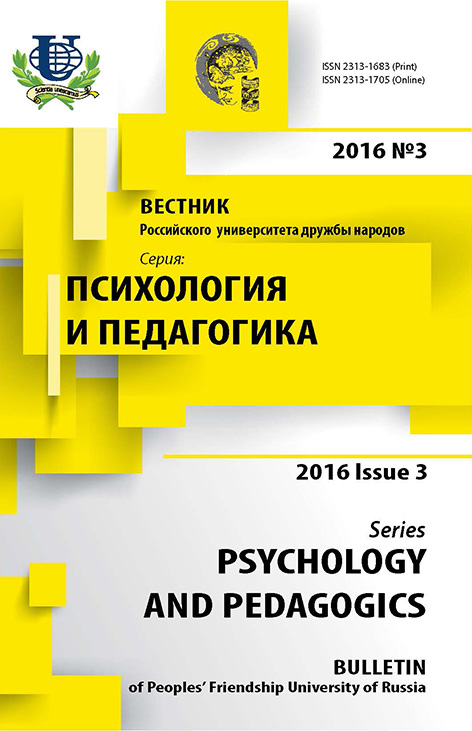SEMANTIC EVALUATION OF ETHNIC STEREOTYPES AND LIFESTYLE OF INDIGENOUS PEOPLESOF THE NORTH OF RUSSIA
- Authors: Ryabova MA1, Serkin VP1
-
Affiliations:
- National Research University Higher School of Economics
- Issue: No 3 (2016)
- Pages: 48-58
- Section: Articles
- URL: https://journals.rudn.ru/psychology-pedagogics/article/view/14427
Cite item
Full Text
Abstract
The article discusses the themes of ethnic stereotypes and lifestyle of indigenous peoples of the North and the non-indigenous peoples. The indigenous peoples identify with their ethnic group, positive evaluation of their perceptions of themselves prevail. The indigenous peoples believe that the representatives of other ethnic groups assess them less positively, and in fact, the representatives of non-indigenous peoples evaluate them even worse than they suppose. The students from the number of indigenous peoples consider as the most important parameters for the evaluation of their lifestyle (factors of evaluations): “unattractiveness - attractiveness”, “peacefulness - hostility”, “melancholy - sanguine”. The students from the number of non-indigenous people consider the most important parameters for the evaluation of their lifestyle: “well-being - ill-being”, “hostility - peacefulness”, “sanguine - melancholy”. The testees of both samples evaluate their lifestyle more positively at the conscious, reflexive level (universals), than at the unconscious, uncontrolled level (implicit factor structure of evaluations). The testees of both samples evaluated their lifestyle completely differently at the unconscious, non-regulated level (factorial structure of evaluations), indigenous people have more introverted, non-indigenous people have more extroverted evaluations.
About the authors
M A Ryabova
National Research University Higher School of EconomicsMyasnitskaya str., 20, Moscow, Russia, 101000
V P Serkin
National Research University Higher School of EconomicsMyasnitskaya str., 20, Moscow, Russia, 101000
References















